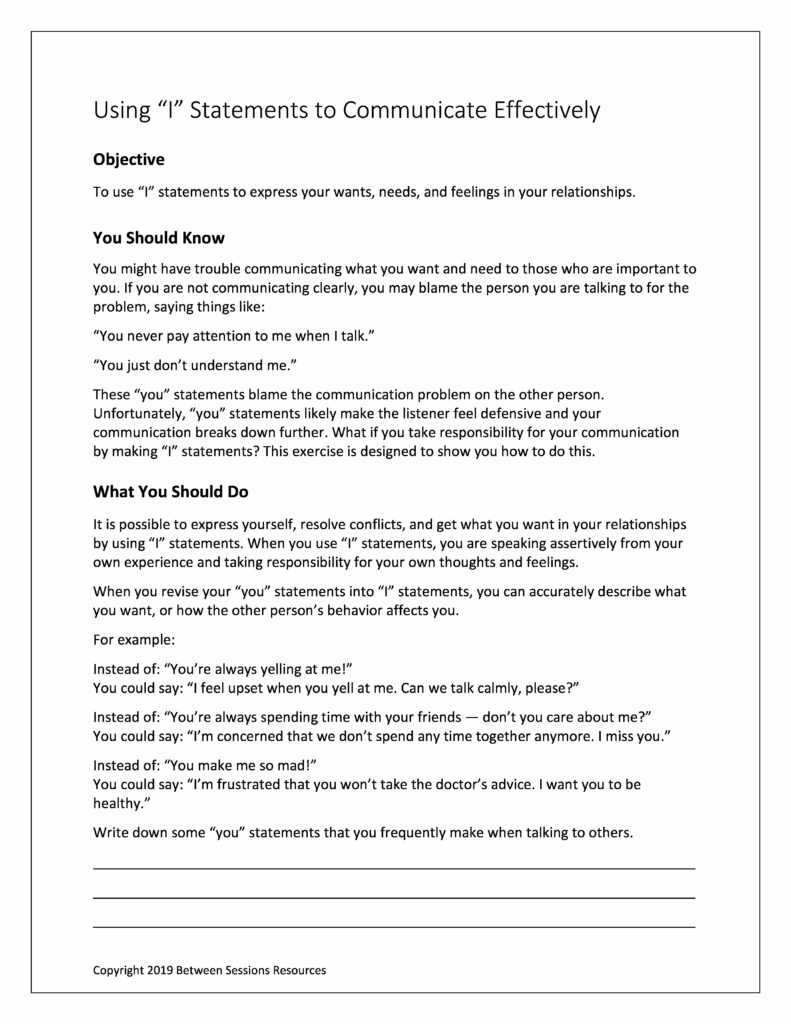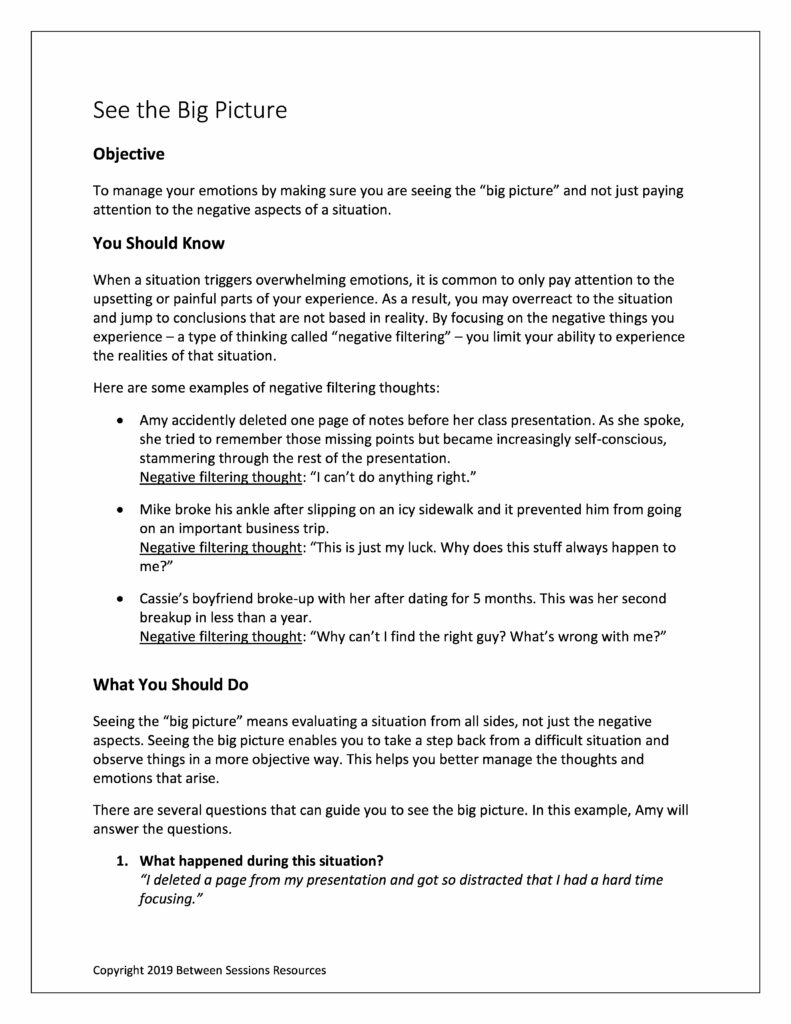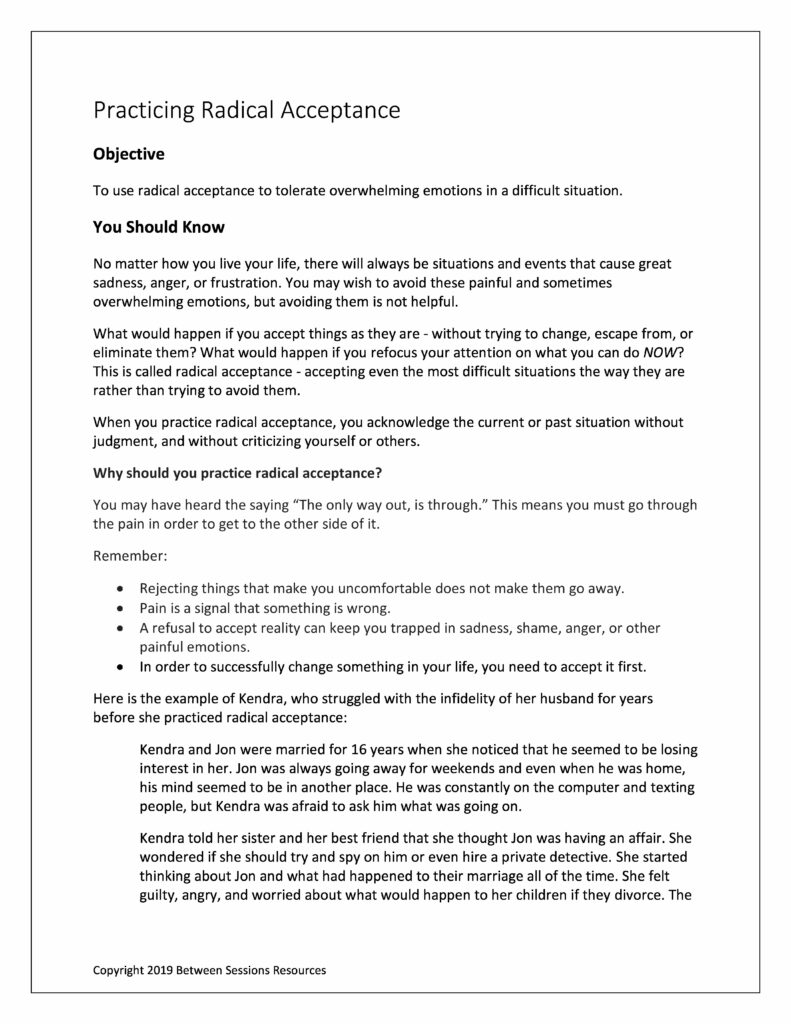Our coaching forms cover a wide variety of issues in the areas of self-growth, life skills, and wellness.
To modify the tools, click the ‘Send to Client’ button by each tool to open our Psychology Forms Filler. You can edit the tool as you see fit and then either print it out or send it to a client to be filled out online. Click here for a tutorial on using the Psychology Forms Filler.
Use the navigation links on the left of this page to view tools in a specific category. Or use the search function at the top of this page to find the exact tool you are looking for.
If you can’t find what you are looking for on this site, please let us know by
clicking here and our team of writers, graphic artists, and therapists will custom-design it for you.
This worksheet teaches people to express their thoughts, feelings, and needs more directly using “I” statements. (communication, interpersonal effectiveness, DBT, 1019)
This worksheet is designed to help people regulate emotions by seeing the big picture rather than on just focusing on the negative aspects of a situation. The exercise is designed to help people evaluate problems accurately and objectively. (DBT, emotional regulation, 1019)
This worksheet, derived from Dialectical Behavioral Therapy (DBT), is designed to help people accept the reality of difficult situations that cause overwhelming emotions. The technique asks people to stay in the present and be self-aware, rather than trying to avoid emotions, blame others, and so on. (grief, bipolar, depression, addiction, 1019)
This worksheet is designed to help someone identify relationship abuse and to find immediate help and support (1019)
This worksheet is designed to help adults identify ways to deal with disorganization. (ADHD, disorganization, 1019)
This worksheet is designed to help teens with ADHD understand their fidgeting. It gives them ideas on how “fidget toys” can help them focus and also when any kind of fidgeting would be a problem. (ADHD, self-control, (1019)
This “card” gives people six simple (and highly researched) questions to ask their spouses about suicidal intention. The guidelines make it easy for a spouse to determine the risk as mild, moderate, or high. Directions are clear for a spouse to immediately seek professional help if a spouse indicates he/she is at a high risk. (suicide prevention, depression, 0919)
This worksheet is designed to help people understand if their grieving has turned into a psychological problem that needs to be addressed (grief, loss, death, 0919)
This worksheet can be used by clients to identify and track the various roles family members can assume when a loved one is experiencing problems with drinking or drug use. (addiction, alcohol abuse, drugs, 0919)
This worksheet is designed to stimulate coping mechanisms in people who feel hopeless, even to the point of being suicidal. The intention of the worksheet is to encourage people to develop a problem-solving attitude. The worksheet asks people to try out five popular problem-solving strategies and then see how often they can be used on a day-to-day basis. (problem-solving, executive functioning skills, coping skills, suicide, depression, 0919)










